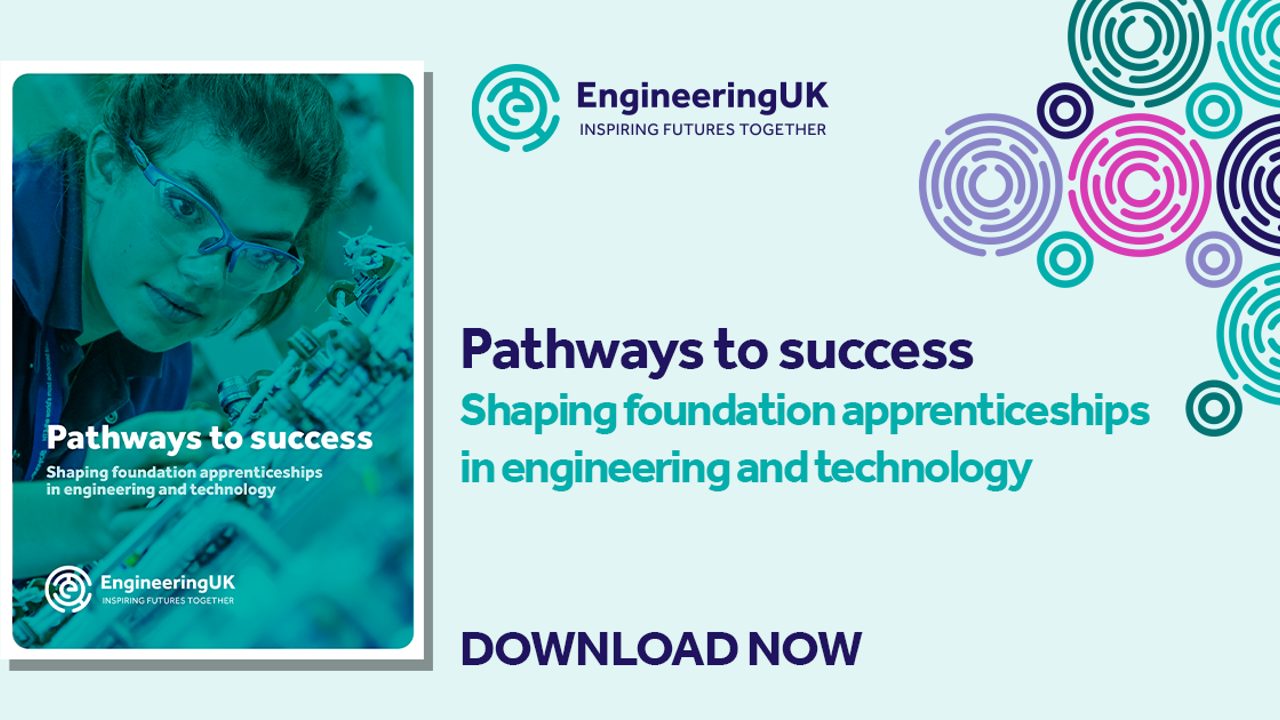Conclusions and recommendations
This week the government published the Curriculum and Assessment Review Final Report and its response to this. The report contains the conclusions and recommendations of the independent review of the curriculum, assessment and qualifications system in England.

Beatrice Barleon, Head of Policy and Public Affairs at EngineeringUK, reflects on what this means for STEM education and for pathways into engineering and technology careers.
Spotlight on STEM subjects
There is a lot to like about the final report of the Curriculum and Assessment Review. In particular, we welcome the increased focus on the sciences, and the proposed entitlement to triple sciences for all pupils. GCSEs in science, maths, engineering and technology (STEM) subjects are a key milestone on the journey towards a career in engineering and technology. However, if schools are to realise this entitlement, government must focus on addressing the acute specialist teacher shortages in some of these subjects - especially physics.
Importance of practical learning
We also welcome the acknowledgement that a revised national curriculum should allow space and time for pupils to master content and for teachers to deliver engaging lessons. The Science Education Tracker highlighted the importance of practical hands-on learning to engage a wider range of pupils in the sciences, including more girls. And we urge that government consider the importance of integrating the good quality practical learning that the review recommends in this context.
Focus on inclusion
We are pleased to see government aspiring to design a curriculum that works for all young people, and which has inclusion at its heart. We welcome the acknowledgement that representation matters. However, it is important that in the wider context of inclusion, we don’t lose sight of the particular inequities that some groups of young people experience – and find ways to address them.
We know that far fewer girls than boys for example choose to do a computing GCSE, with the same holding true for physics at A levels. We are therefore pleased to see that government is looking to address some of the systemic barriers to participation for example in the computing curriculum. However, there is a long way to go to make all STEM subjects more accessible to all young people. We ask that government works with EngineeringUK and wider Gender Pathways into Engineering and Technology Collective to ensure the curriculum and assessment system, as well as the teaching of physics, computing and design & technology, all feeder subjects for engineering and technology, appeals to all students, including girls.
The enrichment entitlement is an interesting new development and the idea of it is to be applauded. However, we would like to see STEM enrichment activities, like STEM clubs, included alongside civic engagement, the arts and sport.
Climate Education
We welcome the fact that the government will look to enhance climate education in subjects such as geography, science and citizenship. EngineeringUK’s Climate Schools Programme has taken a cross-curricular approach with resources for lessons in English, geography, and science and we’d be delighted to share our learnings here. It is crucial that young people benefit from an understanding of the climate crisis’s causes, consequences and possible solutions. Students should be empowered with the necessary knowledge and skills to thrive in tomorrow’s engineering and technology industries and tackle the serious challenges facing our planet.”
We are pleased to see government aspiring to design a curriculum that works for all young people, and which has inclusion at its heart. We welcome the acknowledgement that representation matters.
— Beatrice Barleon, Head of Policy and Public Affairs, EngineeringUK




